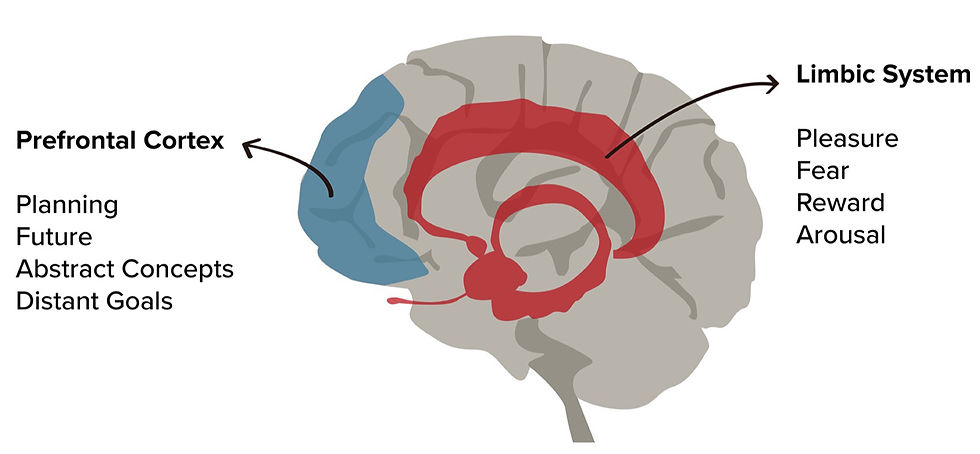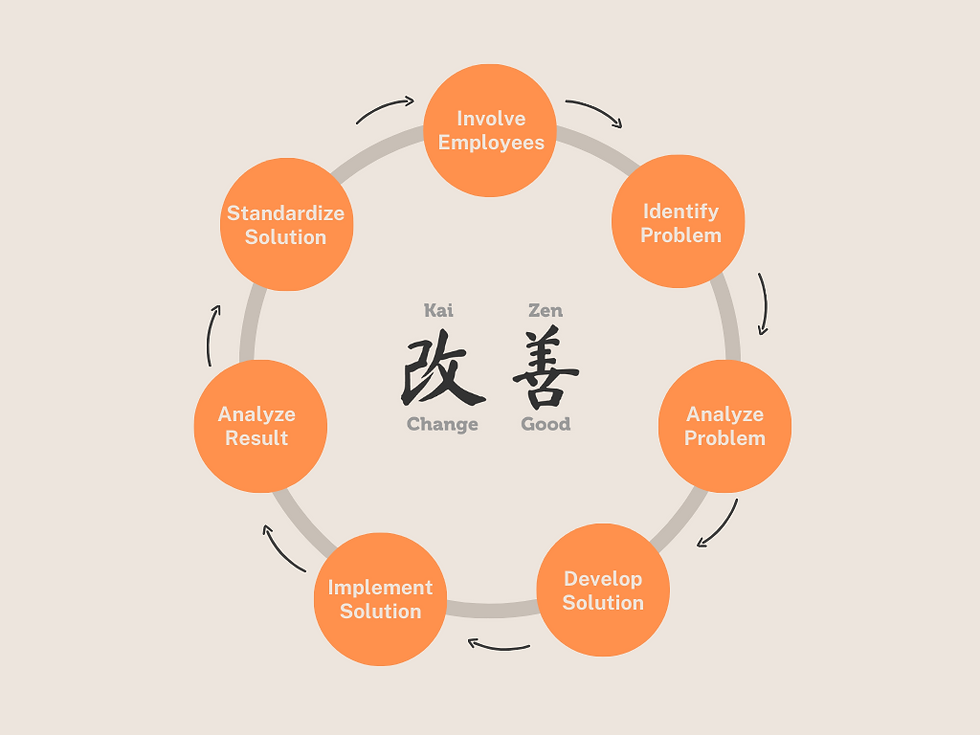The Science Behind Procrastination
- Nidhi Sharath
- Mar 28
- 5 min read
Bangalore, India
Procrastination is a behavior that affects people of all ages, often showing up as the tendency to put off important tasks, whether it's submitting assignments, sticking to a schedule, or completing everyday responsibilities. This cycle of delay is more than just an issue of laziness—it’s a complex interplay of cognitive, emotional, and neurological factors. The internal struggle to start or finish tasks often leads to stress, anxiety, and a sense of discomfort, making procrastination feel like an overwhelming obstacle. By delving into the underlying causes and the scientific aspects of procrastination, we can create more effective strategies to try and break this habit and approach our tasks with greater focus and productivity.
Why Do We Procrastinate?
Procrastination is often seen as just a simple lack of motivation, leading many of us to rely on deadlines to create a sense of urgency. Even when we know it’s not the best choice, we continue to delay tasks. However, procrastination goes much deeper than just willpower.

One major reason we procrastinate is that some tasks feel less appealing than more enjoyable alternatives. Our brains are wired to seek instant gratification, making it difficult to prioritize long-term goals over immediate rewards. In today’s world, with constant distractions like smartphones and social media, this tendency is amplified. We find ourselves opting for easier, less mentally taxing activities instead of focusing on more challenging responsibilities. Over time, this avoidance creates stress and anxiety, making it even harder to begin the next task, leading to a vicious cycle.
Another factor is the feeling of being overwhelmed. When a task seems too large or unclear, we often don’t know where to start, which can make us avoid it altogether. Seeking distractions provides temporary relief but only increases our stress when the task is still looming. Fear also plays a significant role. Many procrastinate because of a fear of failure or not performing perfectly. This fear can paralyze us, preventing us from even attempting the task, as we envision worst-case scenarios and convince ourselves it’s better not to try.
Procrastination Within the Brain

In order to understand and comprehend the act of procrastinating better, it's helpful to know what actually happens in our brain when we procrastinate. The prefrontal cortex, which is responsible for self-control and planning, often clashes with the limbic system, which controls our emotions and demands for instant gratification. This conflicts with the short-term satisfaction offered by distractions like the internet. While procrastination is rewarded by the release of dopamine from the brain during activities that feel good in the moment, the stress of delaying work increases anxiety, making it tougher to start.
Over time, this dopamine-driven feedback loop can make procrastination feel rewarding, which leads to a potential habitual behavior. The more you procrastinate, the more your brain starts to crave the temporary pleasure of avoidance. The feeling of satisfaction from procrastination can also cause you to forget, or temporarily suppress, the fact that there’s a task to be done. This creates a dangerous cycle where the immediate reward of avoidance keeps overshadowing the long-term benefit of completing the task. As procrastination involves both emotional responses and cognitive biases, it can be difficult to break free from this self-justification and avoidance cycle.
How to Overcome Procrastination
Now that we understand procrastination and why it occurs, the next question is: how can we break free from the endless cycle? Researchers have developed several strategies to help us stay on track and overcome the tendency to delay important tasks. These methods not only tackle the root causes of procrastination but also encourage more productive, focused work habits.
One highly effective approach is breaking down tasks into smaller, more manageable parts, a technique known as "decomposition." When faced with a large or complex task, it’s easy to feel overwhelmed, but by dividing the task into smaller, bite-sized steps, you make the project feel less daunting and more achievable. This not only helps reduce any overwhelming feelings but also creates a clear path forward, allowing you to focus on one step at a time. As you complete each smaller task, you build momentum, making it easier to continue progressing.

A Japanese technique known as Kaizen (derived from "Kai" meaning "change" and "Zen" meaning "good") is an effective method for overcoming procrastination. It focuses on making small, incremental changes that lead to significant results over time. To apply Kaizen, pick a task you’ve been avoiding and set a goal to work on it for just one minute each day. An example may be, if you’ve been putting off decluttering your home, begin by spending one minute tidying up a single shelf or drawer. By breaking the task down into such a manageable commitment, you’ll help your brain view it as less intimidating and daunting. More often than not, once you begin, you’ll find yourself working longer than planned as the initial resistance fades, and the task becomes easier to continue.
Another strategy is to build in regular rewards for completing tasks or milestones. Our brains are wired to respond to rewards, and the release of dopamine when we experience pleasure helps reinforce behavior. When you reward yourself after accomplishing a specific task or reaching a goal, you create a positive feedback loop. This encourages you to continue moving forward. Rewards could range from a short break, a treat, or even just the satisfaction of checking a task off your list. The key is to make sure the reward is motivating enough to keep you on track, but not so distracting that it pulls you away from your work.
While these strategies can be effective in combating procrastination, it’s important to remember that not every method works for everyone. Furthermore, procrastination isn't always a negative behavior. Sometimes, it’s a signal from our brain that we aren’t in the right frame of mind to approach a task with the focus and energy it requires. In such cases, taking a break or resting is crucial for recharging our minds, allowing us to return to the task with a fresh perspective and increased efficiency. Understanding why we procrastinate is key to overcoming it, whether it’s due to fear, distraction, or a craving for instant gratification. By acknowledging these underlying causes, we can better tackle the habit of procrastination and shift our approach to tasks with more focus and intention.
References
Don't procrastinate on exploring—stem your curiosity! Explore more with STEM·E!



Kommentarer